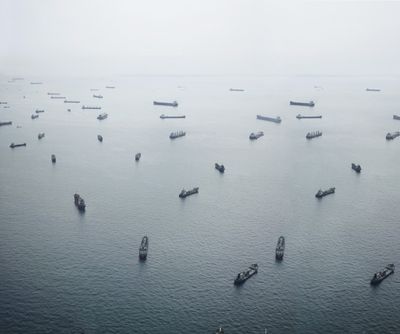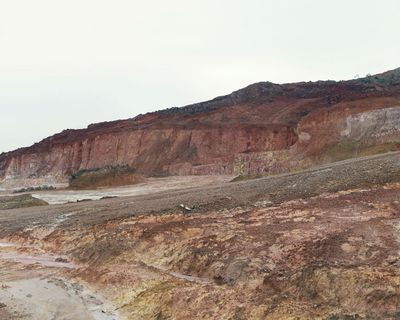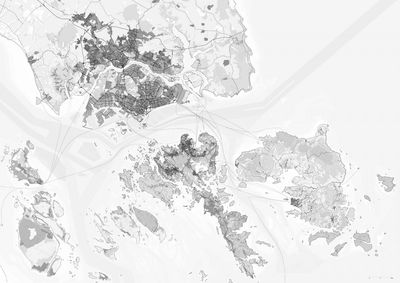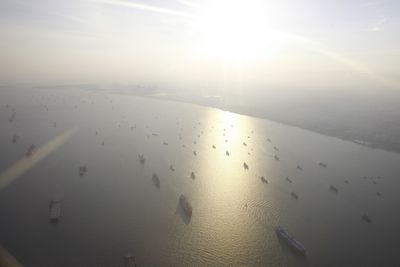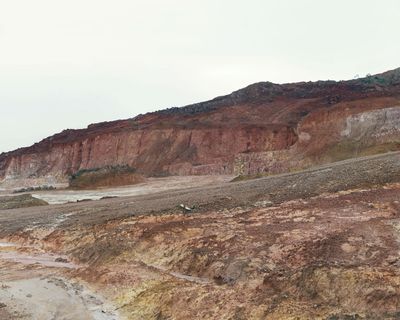HinterlandSingapore Beyond the Border
Future Cities Laboratory
Architecture of Territory investigates the phenomena and processes of urban transformation of contemporary territories. It comprises a shift of interest from cities to broader, territorial frames and to what was once considered as the non-urban realm or the city’s ‘constitutive outside’: the nature, the rural, and the wild. The current research theme, the hinterland, puts in focus the multiple territorial imprints of cities, using the island-state of Singapore as the paradigmatic research case.
Throughout history, cities have functioned as centres of political and economic power from which the agricultural and resource-rich hinterlands were controlled. From the nineteenth century onwards, new technologies, transportation modes, and the opening of trade have introduced a remarkable complexity to the relationship between cities and hinterlands.
Today, it is often thought that cities rely decreasingly on surrounding territories for supply and subsistence. Instead, they seem emancipated from the constraints of geography, operating in a global web of dependencies. By contrast, this research is based on a hypothesis that an understanding of the city-hinterland relationship, the ability to conceptualise it in qualitative terms, and to influence it by means of planning and design strategies, is central to addressing urban sustainability.
At first glance, the island city-state of Singapore is the city without a hinterland. Certainly, it is a city whose production grounds and access to resources lie beyond national borders. Singapore’s geographical hinterland now comprises the tri-national space that includes the Malaysian State of Johor and Indonesian Riau Archipelago. The economic incorporation of proximate areas in Malaysia and Indonesia has remained both a necessity and a profitable opportunity for Singapore.
The hinterland research is founded on extensive field investigations and studio work carried out by the professorship and students of the ETH Department of Architecture since 2011. The cross-border expeditions in Singapore, Johor and Riau enabled a collection of many original case studies, which together form an alternative portrait of the city-state.
The research does not reinforce the accustomed view of Singapore as an island developed on the paradigm of a global city, but as a city whose present and future are tied to the tri-national metropolitan region. Beyond the specific case, the research is a rich source for redefining the notion of the hinterland at the start of the twenty-first century.
